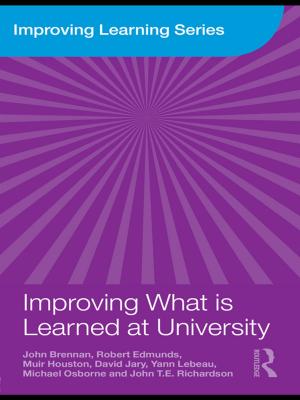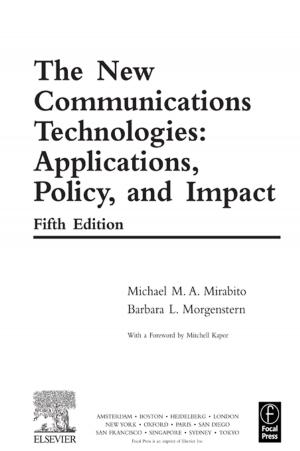Ecofeminism and Systems Thinking
Nonfiction, Social & Cultural Studies, Social Science, Gender Studies, Feminism & Feminist Theory, Women&| Author: | Anne Stephens | ISBN: | 9781135022303 |
| Publisher: | Taylor and Francis | Publication: | July 18, 2013 |
| Imprint: | Routledge | Language: | English |
| Author: | Anne Stephens |
| ISBN: | 9781135022303 |
| Publisher: | Taylor and Francis |
| Publication: | July 18, 2013 |
| Imprint: | Routledge |
| Language: | English |
This book brings together two vitally important strands of 20th-century thinking to establish a set of simple and elegant principles for planning, project design and evaluation. It explains the backgrounds of cultural ecofeminism and critical systems thinking, and what we find when they are systematically compared. Both theories share a range of concepts, have a strong social justice ethic, and challenge the legacy of modernity. The book takes theory into practice. The value of the emergent principles of feminist-systems thinking are described and demonstrated through four chapters of case studies in community development settings. The principles can be used to influence project design and outcomes across a range of disciplines including project management, policy, health, education, and community development. This book has much to offer practitioners who seek to create more socially just and equitable project and research outcomes.
This book brings together two vitally important strands of 20th-century thinking to establish a set of simple and elegant principles for planning, project design and evaluation. It explains the backgrounds of cultural ecofeminism and critical systems thinking, and what we find when they are systematically compared. Both theories share a range of concepts, have a strong social justice ethic, and challenge the legacy of modernity. The book takes theory into practice. The value of the emergent principles of feminist-systems thinking are described and demonstrated through four chapters of case studies in community development settings. The principles can be used to influence project design and outcomes across a range of disciplines including project management, policy, health, education, and community development. This book has much to offer practitioners who seek to create more socially just and equitable project and research outcomes.















